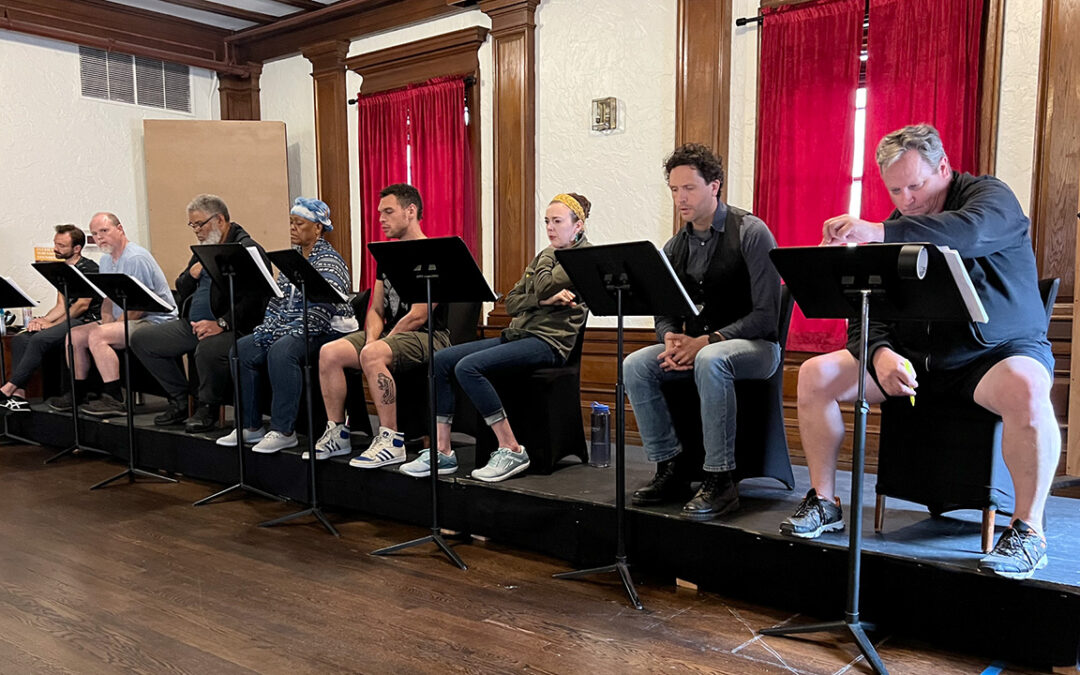The staged reading of The Grace of God & The Man Machine went very well. It had energy. It came alive.
A staged reading is a collaborative stress test for the words of the story but without the action. Its success or failure for me is measured by the energy generated by the words of the play, delivered by highly talented actors in character without the aid of action on the stage.
A stage play is different. It is an art form, caught between the novel — where the story blooms in the imagination of the reader — and the movie — where the story is told for the screen and, once told, never changes.
The theater performance is the same as the other two in that it is first created by words but it is different because it is delivered to its audience live.
We were blessed with eight characters performed by gifted actors who brought the words alive, so we could see if the play created that energy we were looking for and, in cases where it did not, make the changes needed so they do.
A few nights before Onaje opened at the NYCFringe, I was honored to have dinner with the famous Broadway producer and founder of the Commercial Theatre Institute (CTI), Tom Viertel. I asked him on opening night if he could tell if he had a hit play. He said yes. He told me to sit in the back of the theater where you could see the audience, and then look for any movement — searching for a handkerchief, unwrapping candy, or looking at the program — any motion other than full concentration on the stage. This was evidence of loss of focus, and should be marked in the text.
At ten o’clock, the day of the reading, eight professional and highly successful professional actors met Steve Eich for the first time and they began reading the play together. They had all been provided the script before, but now Steve’s direction was creating a harmony that would create this energy. They broke for lunch at 1:00, and then began their practice performance with editing and interruptions to bring that harmony to the process. I was very impressed by each actor after they finished, and broke for dinner at 5:30 to return, dressed in black for the reading at 7:00.
What happened at seven o’clock was quite remarkable. Each of the actors had become their characters, and I found myself twice lost in the words that I had written, and rediscovered the power of the play exclusively through the interactions of the actors.
At the end of the first act, I was quite surprised and pleased, because there was an extended ovation from what had been a quiet crowd. I had done what Tom Viertel told me to do. I had watched the crowd. They hadn’t moved, and when anyone did move I marked the script.
More importantly, I had felt the energy from the stage and I had been moved by this remarkable collaborative stress test. It worked.
On to the next step.

